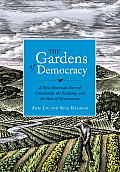 Since the Industrial Revolution, the dominant model for any complex system has been the machine. It’s been applied to societies, governments, companies, even individual people. The problem with a model of any kind is that it’s only accurate as far as it goes. A machine is a great model of something that takes consistent inputs, rationally manipulates them, and then spits out consistent products, but it doesn’t take into account the inherent
Since the Industrial Revolution, the dominant model for any complex system has been the machine. It’s been applied to societies, governments, companies, even individual people. The problem with a model of any kind is that it’s only accurate as far as it goes. A machine is a great model of something that takes consistent inputs, rationally manipulates them, and then spits out consistent products, but it doesn’t take into account the inherent  messiness of biological systems, the unpredictability of groups, or the irrationality of people. Perhaps a better metaphor for a biological system would be a biological metaphor, like a forest or a garden. Not coincidentally, that’s the idea explored in this month’s Book Spotlight, “The Gardens of Democracy”.
messiness of biological systems, the unpredictability of groups, or the irrationality of people. Perhaps a better metaphor for a biological system would be a biological metaphor, like a forest or a garden. Not coincidentally, that’s the idea explored in this month’s Book Spotlight, “The Gardens of Democracy”.
“The Gardens of Democracy”, Eric Liu and Nick Hanauer
 American democracy is informed by the 18th century’s most cutting edge thinking on society, economics, and government. We’ve learned some things in the intervening 230 years about self-interest, social behaviors, and how the world works. Now, authors Eric Liu and Nick Hanauer argue that some fundamental assumptions about citizenship, society, economics, and government need updating. For many years the dominant metaphor for understanding markets and government has been the machine. Liu and Hanauer view democracy not as a machine, but as a garden. A successful garden functions according to the inexorable tendencies of nature, but it also requires goals, regular tending, and an understanding of connected ecosystems. The latest ideas from science, social science, and economics—the cutting-edge ideas of today–generate these simple but revolutionary ideas:
American democracy is informed by the 18th century’s most cutting edge thinking on society, economics, and government. We’ve learned some things in the intervening 230 years about self-interest, social behaviors, and how the world works. Now, authors Eric Liu and Nick Hanauer argue that some fundamental assumptions about citizenship, society, economics, and government need updating. For many years the dominant metaphor for understanding markets and government has been the machine. Liu and Hanauer view democracy not as a machine, but as a garden. A successful garden functions according to the inexorable tendencies of nature, but it also requires goals, regular tending, and an understanding of connected ecosystems. The latest ideas from science, social science, and economics—the cutting-edge ideas of today–generate these simple but revolutionary ideas:
- True self interest is mutual interest. (Society, it turns out, is an ecosystem that is healthiest when we take care of the whole.)
- Society becomes how we behave. (The model of citizenship depends on contagious behavior, hence positive behavior begets positive behavior.)
- We’re all better off when we’re all better off. (The economy is not an efficient machine. It’s an effective garden that need tending. Adjust the definition of wealth to society creating solutions for all.)
- Government should be about the big what and the little how. (Government should establish the ideas and the goals, and then let the people find the solutions of how to make it happen.)
- Freedom is responsibility. (True freedom is not about living some variant of libertarianism but rather an active cooperation a part of a big whole society; freedom costs a little freedom.)
The Gardens of Democracy is an optimistic, provocative, and timely summons to improve our role as citizens in a democratic society.










